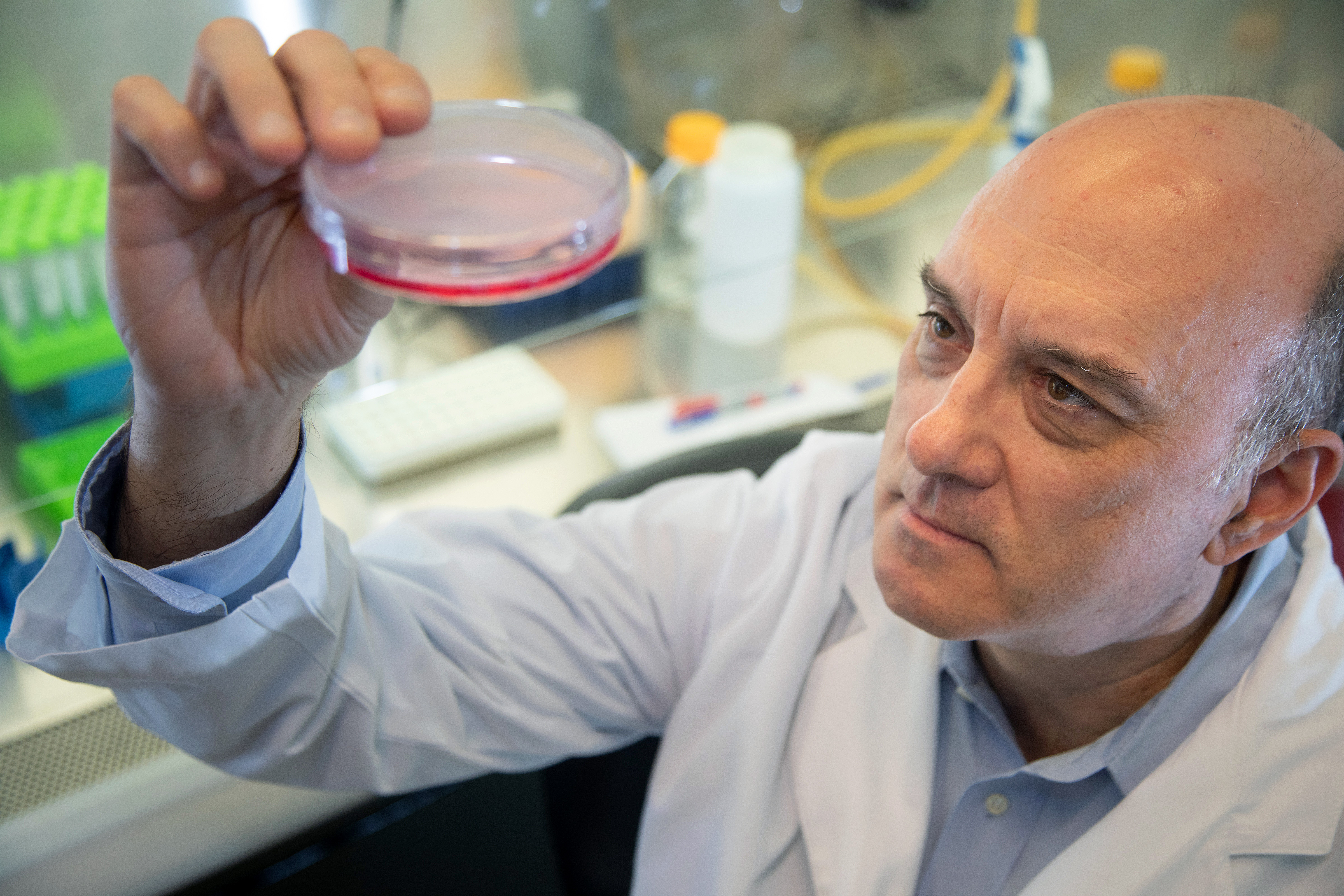Faculty Trainers
-

Assistant Professor of Neuroscience
Research
The Abdelfattah lab invents molecular tools to study how the brain works. Our research combines fluorescence imaging, protein engineering, electrophysiology, and advanced genetic approaches to visualize the structure and function of the nervous system.
-
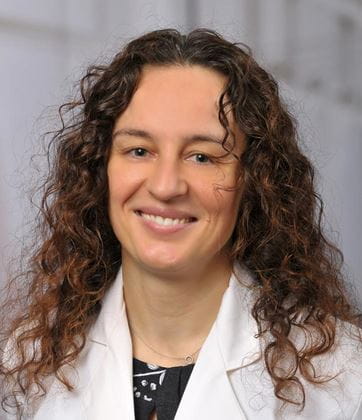
Associate Professor of Molecular Biology, Cell Biology and Biochemistry
Structures of biological molecules and their roles in disease
Research
The Accornero Lab aims at understanding the mechanisms underlying heart and skeletal muscle diseases with the goal of developing new therapeutic strategies for myopathies. The group is particularly interested in targeting RNA-binding proteins to modulate the expression of pathologic genes during stress challenges.
-
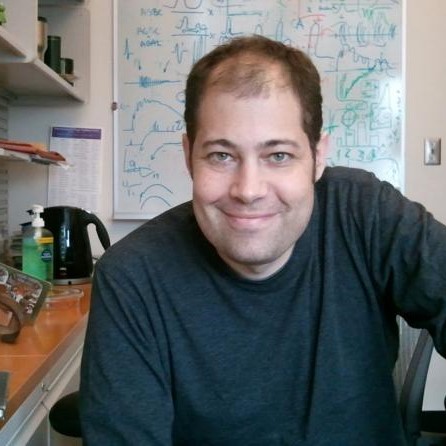
Professor of Neuroscience
Research
Our lab studies the development of neural circuits and the role the external environment plays in shaping these circuits. We use a combination of electrophysiology, molecular biology, behavior and imaging to address these questions.
-
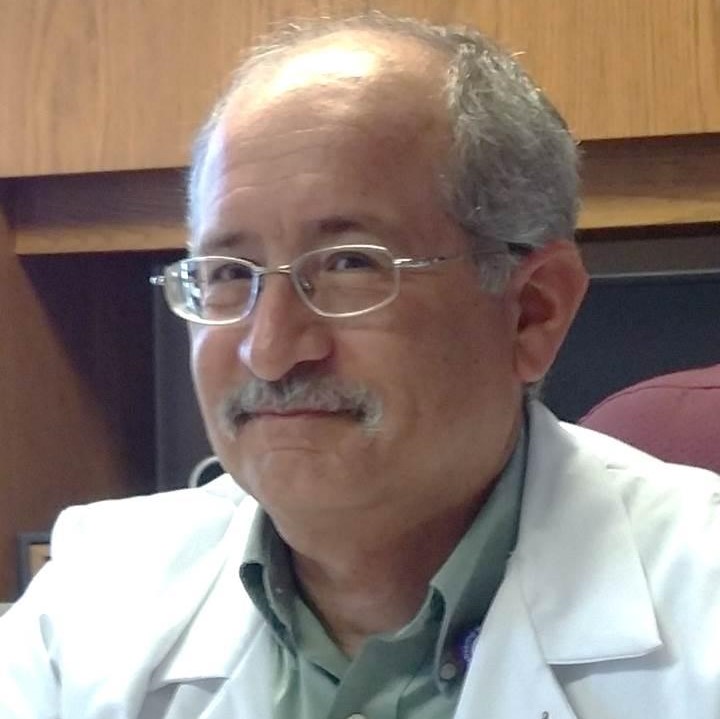
Professor of Surgery (Trauma) (Research)
Research
Dr. Ayala's research interests include the assessment of the differential/pre-dispositional effectors of immune cell function that alter the host response to sepsis (both in the mature adult and/or neonate); the role of programmed cell death/apoptosis and/or the impact of select checkpoint proteins have on immune dysfunction observed following hemorrhage and/or sepsis; as well as selective examination of these processes/factors contributions to the development of acute lung injury resultant from shock and/or septic insults.
-

Mencoff Family Associate Professor of Translational Research, Associate Professor of Pathology and Laboratory Medicine Overview
Research
Dr. Bailey is a practicing physician in Transfusion Medicine and Coagulation at Miriam and Rhode Island Hospitals. He is a core member of the Center for Computational Molecular Biology and co-director of their PhD program. He studies infectious disease genetics and genomics aiming to understand host and pathogen interactions within the context of immunity and human disease. His research is integrative combining experimental and computational approaches. The majority of his current research relates to the parasitic infection malaria—including the direct consequences of infection, parasite genome structure, tracking the spread of drug resistance, and the examination of related diseases including the cancer Burkitt lymphoma. He has made major contributions to methods for analyzing whole genome sequencing in particular to study segmental duplication and copy number variation as well as more recent methods for high-throughput pathogen targeted sequencing to track pathogens across space and time.
-

Sidney A. Fox and Dorothea Doctors Fox Professor of Ophthalmology, Visual Science, and Neuroscience, Professor of Neuroscience, NIH Graduate Partnership Program Director
Research
Our laboratory studies how the mammalian brain processes olfactory information and translates it into behavioral outputs.
-

Associate Professor of Pathology and Laboratory Medicine, Associate Director of the MD-PhD Program
Research
The Bartnikas lab explores the fundamental molecular, biochemical, genetic, and physiologic basis of metal homeostasis in the human body. Using multiple in vivo and in vitro experimental approaches, our laboratory investigates the mechanisms by which metals are acquired by the body, distributed to various tissues, and recycled or eliminated and how perturbations in these mechanisms can lead to human disease.
-
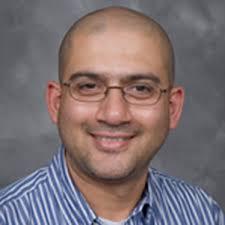
Associate Professor of Chemistry
Research
Our group is interested in questions that lie at the interface of chemistry, biology, and materials science. Research in the group includes glycochemistry and glycobiology; synthesis and application of novel polymers and nanomaterials; development of new sensors and diagnostic agents. Current foci include the glcyochemistry of the plant cell wall and the development of small molecules that interfere with bacterial cell wall dynamics and can serve as leads for new antibiotics.
-

Associate Professor of Molecular Microbiology and Immunology
Research
We study the responses of microbial communities and isolated microbes to external stressors such as antimicrobial agents. This work is particularly pressing because unlike at any other time in human history, we are currently exposed to a wide array of natural and artificial antimicrobial agents in the form of antibiotics, chemical disinfectants, and chemotherapeutic agents among others. Our goals are to improve the efficiency of current antibiotics while protecting the beneficial bacteria that are part of our microbiome.
-

Assistant Professor of Molecular Microbiology and Immunology
Research
The Chellappa lab is dedicated to understanding how metabolism drives complex phenotypes in mammals using stable isotope tracing and metabolomics. We use a combinatorial approach at the interface of genetics, biochemistry, multi-omics, and physiological measurements to understand how metabolism goes haywire across biological scales in aging, obesity, cancer, and neurodegenerative diseases. Our research interests span from identification of biomarkers and therapeutic targets, elucidating disease mechanisms, host-microbiome interactions, to deep diving into the dark matter in human metabolomics.
-

Associate Professor of Medicine
Research
The focus of our research is to evaluate the mechanisms underlying vascular, cardiac, and skeletal muscle dysfunction seen in pulmonary vascular diseases. The laboratory uses a variety of in vitro, ex vivo and in vivo approaches utilizing the preclinical models of pulmonary hypertension and emphysema.
-
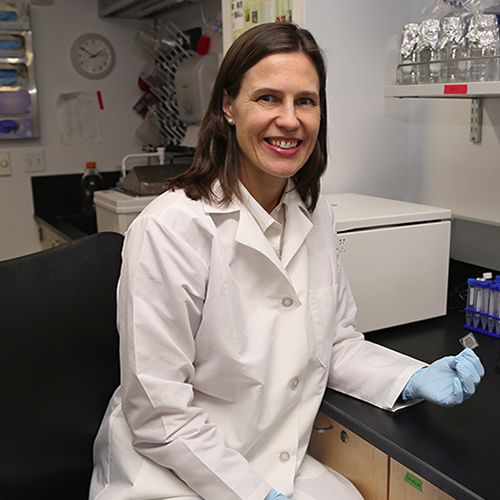
Associate Professor of Engineering
Research
Our research mission is to re-engineer contractility in the heart using hiPSC-derived cardiomyocytes and working to develop mature engineered cardiac tissue that can integrate with the host heart through neovascularization and electromechanical coupling.
-

Professor of Molecular Microbiology and Immunology
Research
My group studies human fungal pahtogens with a focus on understanding the evolutioin of pathogenesis and drug resistance and applications of new genomic technologies. We are currently focused on understanding the evolution and antifungal resistance of the recently emerged pathogen Candida Auris, on characterizing the genomic basis of drug resistance in other fungal pathogens, on how natural variation and evolution contributes to clinical virulence in Cryptococcus neoformans, and on applications of genomic data to diagnostic development. Our work is highly collaborative, engaging teams of computational biologists, experimental scientists, clinicians, and field researchers.
-

Associate Professor of Medical Science, Associate Professor of Engineering, Associate Professor of Orthopaedics
Research
The Darling Lab conducts research across diverse fields of cell mechanics, mesenchymal stem cell biology, and musculoskeletal tissue regeneration. Recent projects include identification and enrichment of stem cells by mechanophenotype using biochemical proxies or label-free microfluidic devices, measurement of microenvironmental forces in cell-dense tissues, and development of cell-mimicking materials for drug delivery.
-

Assistant Professor of Molecular Biology, Cell Biology and Biochemistry
Research
My research combines expertise in cell biophysics and cancer biology for quantitative analysis of the molecular and mechanical profiles of cells in tumor and tissue microenvironments. Research goals include: (1) developing novel therapies for metastatic cancer, (2) improving stem cell homing to tissues, and (3) using mechanics to guide in the development of tissue substitutes.
-

Associate Professor of Molecular Microbiology and Immunology
Research
My research program is focused on understanding how the trypanosomatid parasites undergo morphogenesis, the process they employ to shape their cells and transmit shape during cell division. This is an important question for two reasons: 1. Trypanosomatids have evolved unique approaches for fundamental cellular processes such as morphogenesis; identifying the molecular mechanisms will provide a better understanding of evolutionary niches, such as parasitism, that arise through diversification of cellular pathways in manners that would be extremely difficult to predict; 2. These pathways represent unique and essential aspects of trypanosomatid biology that could be exploited to develop treatments for a range of neglected tropical diseases that cause significant human suffering in developing countries.
-

Professor of Pathology and Laboratory Medicine, Professor of Neurosurgery
Research
We study the roles of brain insulin deficiency and insulin resistance in neurodegeneration. Three diseases of major interest to us are: Alzheimer's, alcoholic neurodegeneration, and fetal alcohol syndrome.
-

Assistant Professor of Molecular Biology, Cell Biology and Biochemistry
Research
Research in the Deaconescu lab is centered on bacterial mechanisms involved in responses to stress signals, particularly DNA damage. We utilize a combination of biochemical and biophysical methods coupled with structural analyses by X-ray crystallography and electron cryo-microscopy. Our work is relevant to pathogen-host interactions and the development of antibiotic resistance.
-

Professor of Chemistry
Chemical biology, biophysics and their applications
Research
Research in the Delaney Laboratory probes the chemistry and biology of DNA damage repair. We are particularly interested in understanding how packaging of DNA into chromatin influences repair and use biochemical, biophysical, and cell based techniques to elucidate the mechanisms by which cells modulate the critical process of repair.
-

Sylvia Kay Hassenfeld Professor of Pediatrics, Professor of Molecular Biology, Cell Biology and Biochemistry, Chair of Pediatrics
Research
The Dennery lab is investigating the metabolic determinants leading to neonatal lung injury. Premature infants often require ventilatory support for their survival postnatally. This leads to chronic lung injury characterized by alveolar and vascular simplification and abnormal lung function into adulthood. The laboratory is investigating the role of impaired glycolysis and senescence in the lung cells as well as exploring therapeutic interventions to mitigate lung injury.
-

Sorensen Family Dean of Engineering, Professor of Engineering
Research
Dr. Desai is interested in the development and understanding of micro and nanostructured materials for tissue regeneration and therapeutic delivery. Current studies focus on nanostructured materials for immunomodulation; biomimetic architectures for cell-based therapy, and nanomaterials for enhanced drug delivery across biological barriers. We are fundamentally interested in how alterations in micro and nanostructure can be used to modulate cell-material interactions.
-
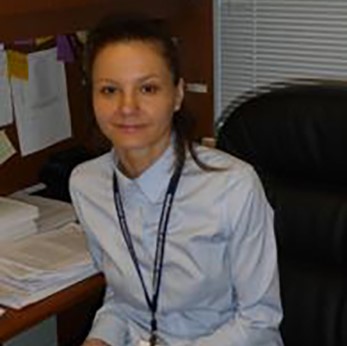
Associate Professor of Medicine (Research)
Research
The goal of our research is to identify new targets for therapies aimed at eradicating drug resistant leukemic stem cells responsible for relapse.
-
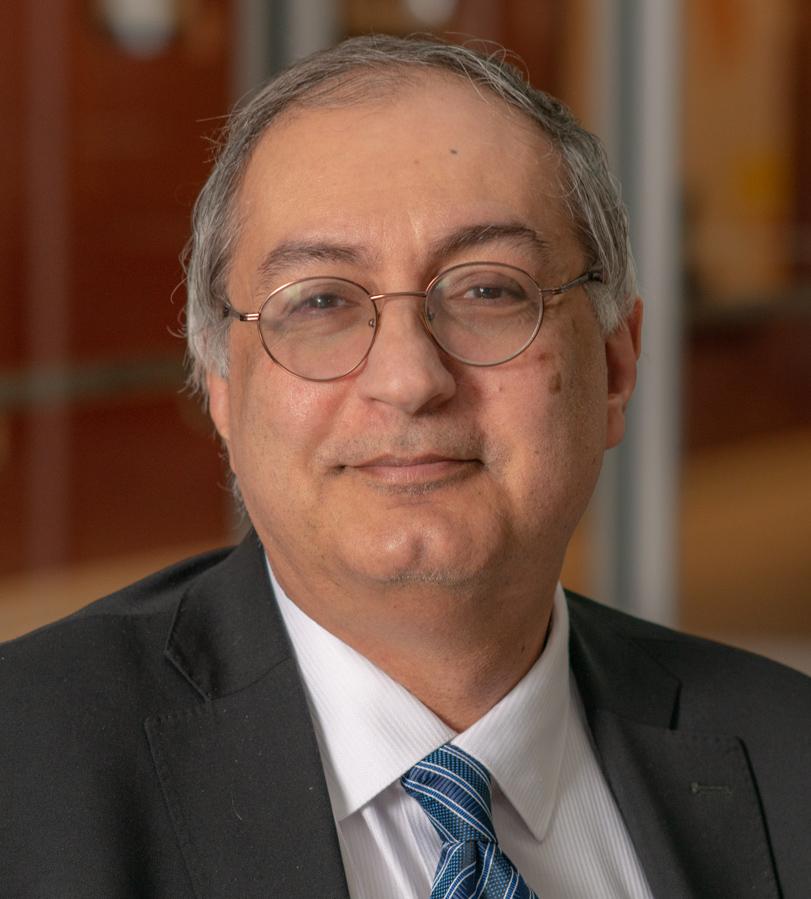
Mencoff Family University Professor of Medical Science, Professor of Pathology and Laboratory Medicine
Research
Our long-standing interest in the El-Deiry Lab has been on unraveling the cell death pathways induced by the p53 tumor suppressor and the TRAIL innate immune system, mechanisms of drug resistance including under hypoxia, and on developing novel therapeutics for cancer. Our group uses a range of techniques from cell biology, molecular biology, omics, co-culture and in vivo models, transgenic and patient-derived organoids, and clinical samples in our basic and translational research. We collaborate with other labs at Brown, Lifespan and industry and are using innovative research technologies, and clinical datasets to study the impact of therapeutics on the tumor microenvironment and drug resistance in various cancer types.
-

Associate Professor of Molecular Biology, Cell Biology and Biochemistry
Research
We use nuclear magnetic resonance spectroscopy to see disordered protein structure, motions, and interactions with atomic resolution. We seek to understand how low complexity domains mediate phase separation contributing to membraneless organelle formation as well as some cancers, how disease mutations cause ALS and other neurodegenerative diseases, and how post-translational modifications alter interactions and may serve as a switch to prevent disease.
-
Professor of Molecular Biology, Cell Biology and Biochemistry
Research
Dr. Frost leads work focused on the basic neurobiology underlying brain aging and neurodegeneration, with a strong emphasis on Alzheimer's disease and related tauopathies. She and her team employ a multi-system approach to rapidly identify, test, and validate hypotheses that are relevant to human disease. Early discovery takes place in Drosophila, a model organism that is well suited for investigating issues of causality in disease processes. To determine if studies are relevant to human disease, they complement Drosophila work with iPSC-based modeling, as well as neuropathological and computational analyses of mouse and postmortem human brain. Major efforts in the laboratory are focused on transposable elements, nuclear and genomic architecture, and RNA biology in the context of tauopathies and brain aging. Dr. Frost has recently led a phase IIa clinical trial in subjects with Alzheimer's disease based on the discoveries of her team. Her accomplishments have been recognized by an O'Donnell Award in Medicine, a CurePSP Standout Achievement Award, and the Oskar Fischer Prize.
-
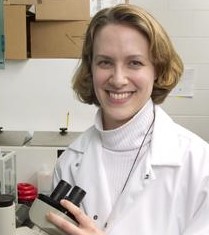
Associate Professor of Neuroscience, Chair of Brown University Institutional Animal Care and Use Committee, Associate Professor of Engineering
-

Assistant Professor of Pathology and Laboratory Medicine
Research
The Holder Lab is a translational science cancer research lab. We focus on research (basic science and pre-clinical) with a short path to application in the clinic in the form of clinical trials. Thus the three pillars of our research activities are: identify, investigate, and implement. We seek to identify novel targets for cancer therapy, investigate the molecular mechanisms associated with the oncogenicity of the identified targets, and implement clinical trials that interrogate the applicability of those targets for therapeutic use. Historically the Holder lab has been particularly focused on PIM1 kinase as a therapeutic cancer target, and this interest continues.
-

GLF Translational Assistant Professor of Molecular Biology, Cell Biology and Biochemistry
Research
The overarching goal for the Huang laboratory is to understand the molecular and cellular fundamentals surrounding neurodegeneration and brain aging process, with the aim of future translation into much-needed therapeutics. Our team has established stem cell technology and leveraged transgenic mouse models to inform a wide range of pathophysiology in the brain underlying multiple disease mechanisms.
-

Assistant Professor of Research, Department of Obstetrics & Gynecology, Warren Alpert Medical School
Cancer biology and therapeutics, Translational and clinical applications of pharmacology and physiology
Research
The James Lab focuses on translational ovarian and triple negative breast cancer research. Our overarching mission is to uncover novel immune based prognostic and therapeutic markers that can ultimately improve patient immunotherapy response. To accomplish this goal, we implement a variety of preclinical in vitro and in vivo models, including the utilization of patient samples to enhance the clinical relevance of our research.
-

Associate Professor of Molecular Microbiology and Immunology, Pathobiology Graduate Program Co-Director
Research
The overarching goal of the Jamieson lab is to discover mechanisms of host disease tolerance. This is the concept that in order to survive an infection the host must not only control the infection, but mitigate the impact and potential damage to essential organs. We use models of cutaneous injury and respiratory infections to discover host directed therapeutics for complex and deadly diseases.
-

Associate Professor of Neuroscience
Research
In the Jaworski lab, we primarily study molecular mechanisms of neural circuit assembly during embryonic development. This research can advance our understanding of neurodevelopmental disease etiology and inform therapeutic approaches for the repair of damaged neuronal connections after physical injury or onset of neurodegenerative disease. More recently, we have also begun to study how neuronal connectivity is eroded in mouse models of amyotrophic lateral sclerosis, with the goal of identifying novel therapeutic targets for this devastating disease.
-

Associate Professor of Biology
Research
We use X-ray crystallography as our main research tool (together with biochemical and biophysical approaches) to study the structure and function of proteins and macromolecular complexes such as the ribosome. The overall goal of our research is to understand the molecular mechanism of antibiotic resistance caused by mutations in bacterial ribosomes and to evaluate the contribution of post-transcriptional rRNA modifications for ribosome function and antibiotic resistance.
-

Associate Professor of Neuroscience
Research
The Kaun Lab is interested in understanding the genetic, molecular and neural mechanisms underlying reward. We investigate how memories for appetitive stimuli are encoded in the brain and how drugs of abuse affect the molecular pathways in these circuits to result in aberrant motivational response. We combine genetics, behavior, in vivoimaging in behaving animals, molecular biology and biochemistry to address this. Find out more at kaunlab.com.
-

Assistant Professor of Chemistry
Research
The Kizer lab aims to develop tools that enable a deeper understanding of complex carbohydrates (glycans) implicated in human health and disease. We leverage a multidisciplinary approach toward this end, engaging techniques across chemistry, biochemistry, molecular biology, and engineering in each of our main research areas: glycan binding proteins for carbohydrate recognition in cancer; glycosyltransferase microreactors for chemoenzymatic synthesis of defined glycans; and nanostructured glycoconjugates for vaccine development against multidrug resistant bacteria. The materials developed in each project area will be applied in biomedical research settings, ranging from targeted therapeutic delivery and point-of-care diagnostics, to tissue engineering and immune modulation.
-

Stanley M. Aronson Professor of Pathology and Laboratory Medicine, Chair of Pathology and Laboratory Medicine
Research
Dr. Kurtis’ lab focussed on discovering and developing novel therapeutic interventions for malaria and schistosomiasis- two of the leading killers of children on the planet. We currently are working on malaria and schistosomiasis vaccines, malaria therapeutic monoclonal antibodies and anti-malarial small molecule drugs.
-

Associate Professor of Biology, Director, Center for Computational Biology Graduate Program
Research
In my lab, we are deciphering mechanisms of coordinate gene regulation which is a fundamental process essential to all cells from the germ line to the immune system to neurons. We are interested in how these mechanisms are dysregulated in diverse diseases from cancer to neurodegenerative diseases. Our long-term goal is to define how genes are identified for coordinate regulation, the key initial step in their regulation. Dosage compensation is one of the best model systems for studying this process because all of the genes on a single chromosome are specifically identified and co-regulated. Drosophila, like mammals, increase the transcript levels of a large number of diversely-regulated genes along the length of the single male X-chromosome precisely two-fold relative to each female X-chromosome. We are also very interested in how transcription is linked to splicing and how these processes are coordinated across developmental time.
-

Co-Director of Therapeutic Sciences Graduate Program, Associate Professor of Pathology & Laboratory Medicine
Research
Sean Lawler leads the Brain Cancer Therapy Lab in the Department of Pathology and Laboratory Medicine at Brown University. He is affiliated with the Brown Cancer Center where he is co-leader of the CNS Cancer Translational Disease Research Group. The Lawler Lab investigates therapeutic approaches for the treatment of Brain Cancer, from preclinical models to the analysis of data from patient tumors, with the goal of developing the next generation of therapeutic approaches for these extremely challenging diseases.
-
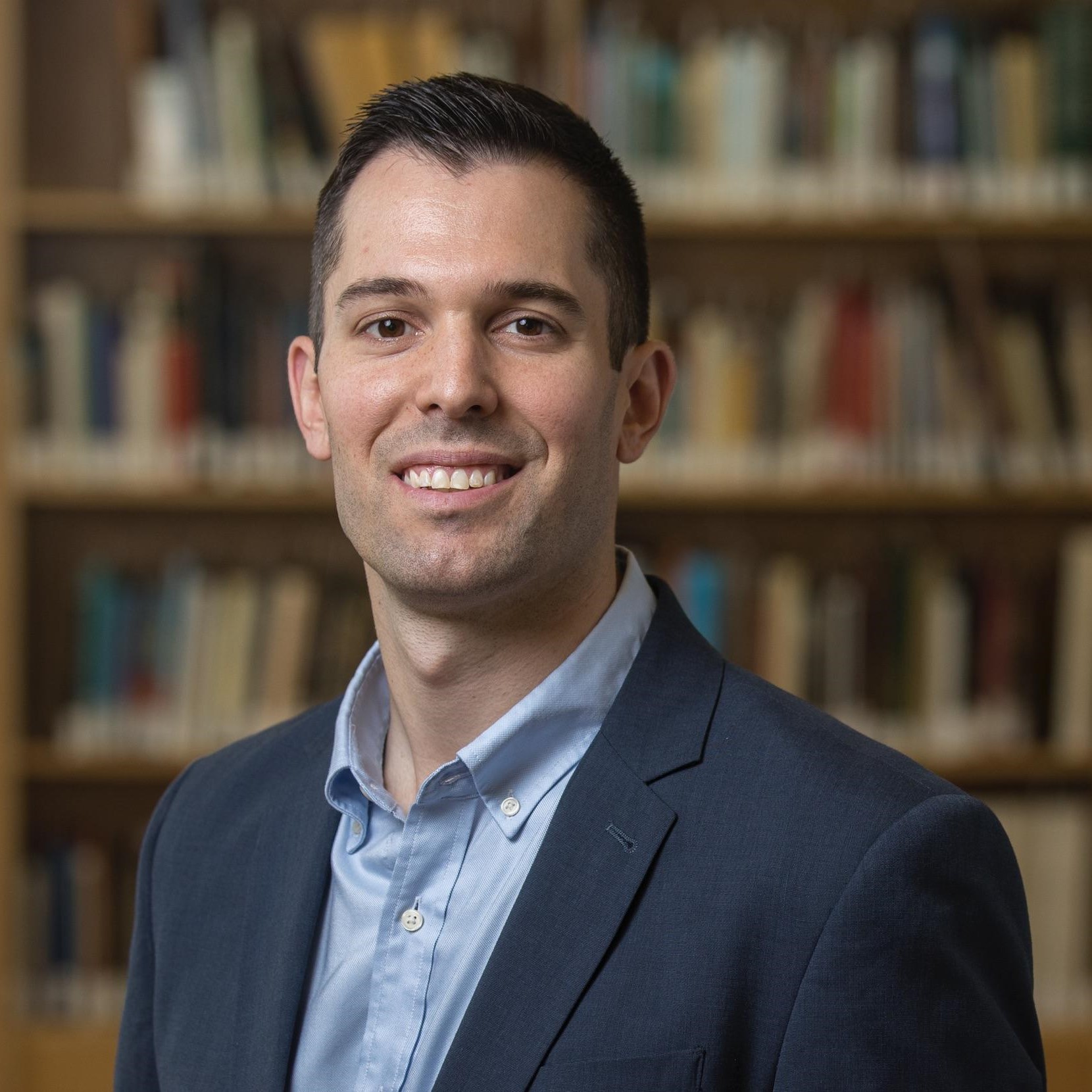
Assistant Professor of Molecular Biology, Cell Biology and Biochemistry
Research
The Lisi laboratory studies the chemistry and biology of enzymes in order to understand how these complex biomolecules function in disease. The lab uses biophysical and biochemical tools to generate molecular level fingerprints of enzyme structures and characterize picosecond-to-second dynamics that propagate mechanistically important biological signals.
-

Professor of Pathology and Laboratory Medicine, Associate Director for Translational Oncology, Legorreta Cancer Center, Director, Translational Research Disease Groups, Director, Cancer Stem Cell/TIME Center
Research
The Mani lab studies how cancer cells escape the immune system and develop resistance to treatments, metastasis, and tumor relapse. We use a combination of cell biology, immune biology, single-cell and spatial transcriptomics, in vitro and in vivo mouse modeling, and multiplex immunofluorescence techniques to address these important questions.
-

Professor of Molecular Biology, Cell Biology and Biochemistry
Research
The Marshall lab investigates the signaling deficits underlying the cognitive deficits observed in Angelman syndrome (AS), a severe autism spectrum disorder. Brain-derived neurotrophic factor (BDNF) is a key player in long-lasting increases in synaptic strength and learning. The long-goal is the development of drugs that enhance BDNF signaling to restore cognition in AS, and the treatment of other neurological disorders, including major depressive disorder, traumatic brain injury and Alzheimer's.
-
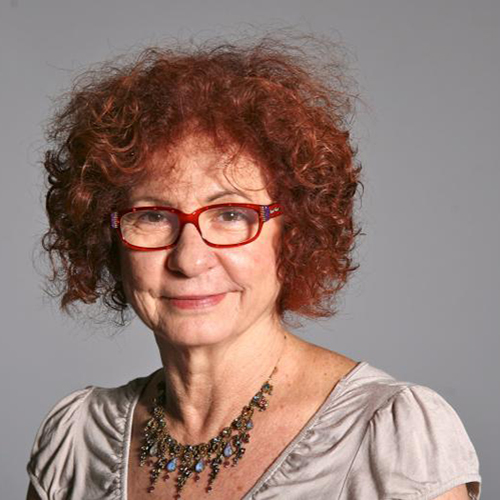
Professor of Pathology and Laboratory Medicine, Professor of Engineering
Research
Dr. Mathiowitz directs an interdisciplinary laboratory that focuses on developing smart delivery systems based on bioadhesive polymers, which enhance the non- specific interaction with intestinal mucosa and allow oral delivery of proteins. In addition the lab work on developing long-acting delivery of antiviral drugs and magnetic pills for home therapy.
-

Robert J. and Nancy D. Carney Assistant Professor of Brain Science
Research
The Mayoral lab is interested in studying cell-cell interactions in the brain and focused on the development and function of oligodendrocytes, specialized glial cells that wrap myelin around neurons.
-
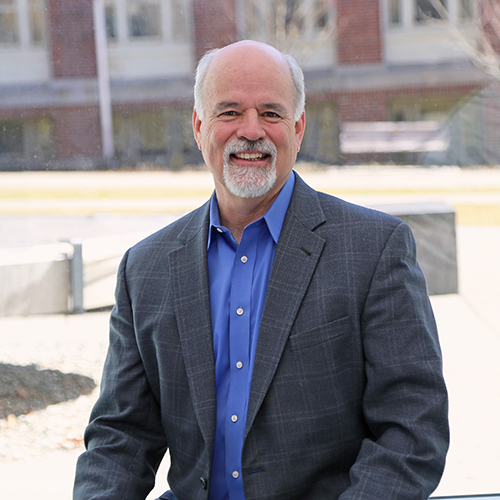
Professor of Pathology and Laboratory Medicine, Professor of Engineering
Research
The Morgan lab invented a new method to grow living cells in three dimensions (3D) and is using this technology to answer fundamental questions in high throughput phenotypic drug discovery, toxicity testing, drug transport and 3D tissue engineering. These areas are relevant to important medical needs including multi-drug resistance in cancer and the quest to find new and less toxic drugs while reducing the use of animals in research.
-

Associate Professor of Medicine
Research
My laboratory focuses on mechanisms of immune-mediate vascular remodeling by studying the macrophage-directed the biologic processes of arteriogenesis, atherosclerosis and atherosclerotic calcification, and pulmonary arterial hypertension. The overarching goal of the research in my lab is to define macrophage-dependent signaling mechanisms that modulate these processes in order to identify novel targets for the development of new inhibitory strategies that might one day be used in the clinic. My laboratory has a number of active studies defining novel macrophage-dependent signaling mechanisms that modulate these processes, using a diverse array of techniques in molecular biology, immunobiology, small animal genetics, and vascular biology.
-
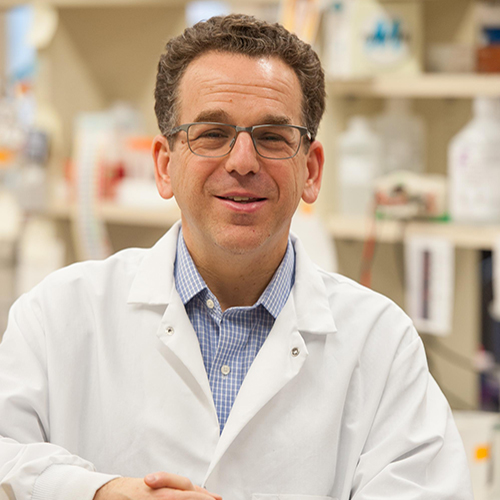
Mencoff Family Professor of Biology, Professor of Neuroscience, Associate Professor of Psychiatry and Human Behavior
Research
The Morrow lab investigates the genetic and molecular mechanisms underlying disorders of cognitive development, such as intellectual disability and autism. The long-term aim of this research is to establish a basic foundation for improved genetic diagnosis and treatment interventions designed to enhance cognitive and functional gains for patients. Because these disorders are highly genetic and in order to identify core molecular mechanisms, genome-wide "forward genetic" strategies to identify genetic mutations have been a principal focus. In complement to this, molecular and neurodevelopmental studies of identified pathways are underway in experimental systems in human and mouse tissues.
-

Associate Professor of Pathology and Laboratory Medicine
Research
The Nixon Laboratory focuses on the functional significance of antibody targeted cellular and complement responses to a novel pediatric malaria vaccine candidate that was discovered here at Brown in the Center for International Health Research. Elucidating the roles of cellular effector mechanisms to this vaccine target will help to guide ongoing immune-epidemiology studies and ultimately vaccine trials. As a second aim, the Nixon Laboratory focuses on identifying novel vaccine targets against the transmissible form of the malaria parasite, the gametocyte, while it still resides within the human host. Novel vaccine candidates that target this stage will ultimately be incorporated into a multi-stage vaccine that target the liver and blood stage of malaria.
-

Provost's Associate Professor, Associate Professor of Neuroscience
Research
The O’Connor-Giles lab is interested in communication in the nervous system. We focus on three areas (1) understanding synapse structure-function relationships; (2) identifying and characterizing new, conserved synaptic genes; and (3) defining chromatin regulatory mechanisms governing the coordinated regulation of synaptic gene expression. In parallel, we develop CRISPR gene editing approaches to further in vivo study of the nervous system.
-

Professor of Neuroscience
Research
The focus of my laboratory is in understanding signal transduction events using fluorescent microscopy in living cells. My lab is equipped with a state-of-the-art two-color TIRF microscope, which we will use to study UV-induced pigmentation in human skin and melanoma behavior. To visualize signal transduction events, we design and generate novel fluorescent probes using molecular biology techniques, which give us a unique angle in answering biologically relevant questions.
-

Manning Assistant Professor of Pathology and Laboratory Medicine
Research
The Plavicki Lab uses the zebrafish model to study how genetic mutations and exposure to environmental contamination affects brain and heart health. We are particularly interested in understanding the functions of the aryl hydrocarbon receptor (AHR), a ligand activated transcription, in nervous development, and how exogenous activation of AHR by environmental AHR agonists disrupts the development of the nervous and cardiovascular systems. Our lab also investigates the endogenous developmental functions of sox9b, a HMG transcription factor which lies downstream of AHR.
-

Assistant Professor of Engineering
Research
The overarching goal of my research program is to develop nanomedicine technologies for targeted therapeutic delivery, with a specific emphasis on RNA delivery to immune cells. Ongoing work is focused on investigating how RNA modifications regulate immune activation in health and disease, and exploring the mechanisms and design principles underlying efficient non-viral RNA delivery to targeted cells in vivo. We incorporate high-throughput techniques, and statistical (design of experiment) methodology to optimize RNA-nanoparticle design, with a particular focus on lipid nanoparticle optimization. Ultimately, our goal is to apply this fundamental knowledge to optimize the design of novel RNA-based immunotherapies for divergent therapeutic applications: cancer and tissue regeneration.
-

Associate Professor of Chemistry and Physics
Research
The Rubenstein Group leverages the tools of physics and computation to study biomolecular dynamics, assembly and evolution. Recently, our group has developed new ML methods that accelerate the prediction of novel, druggable conformations of different proteins, including cancer-causing kinases, and new quantum computing techniques that can improve the prediction of protein dynamics and drug-binding. I am also deeply engaged in developing novel computing architectures and developing new quantum algorithms. While the focus of my work is on developing new electronic structure methods, I am also deeply engaged in rethinking computing architectures and computational biophysics. I am deeply committed to educational equity, research mentoring, teaching, equity, and outreach efforts. I received my Sc.B.s in Chemical Physics and Applied Mathematics at Brown University, my M.Phil. in Computational Chemistry while a Churchill Scholar at the University of Cambridge, and my Ph.D. in Chemical Physics at Columbia University. Prior to being appointed as a professor at Brown, I was a Lawrence Distinguished Postdoctoral Fellow at Lawrence Livermore National Laboratory. Throughout my life, I have been an advocate of educational equity and diversity. As a kid, I grew up in a working/lower middle class suburb of New York City with no emphasis on education and negligibly few with college degrees. I am here at Brown because of luck and the dedication of a few exceptional teachers who took a few moments to suggest some risky, but potentially life-transforming paths. I strongly believe in paying the confidence they put in me back to others. In my spare time, I am avid outdoors woman and athlete. I am proud of my encyclopedic knowledge of basketball and rap. I can usually be found reading some paper about something that hasn’t become a reality yet, or singing Greatest Hits from the Cars at the suggestion of my son Orion.
Dr. Rubenstein was named to Popular Science magazine’s 2021 Brilliant 10 list of the top early career scientists and C&EN’s 2019 Talented 12 list of early career chemists, and has received a number of research and teaching honors including the Fulbright Scholarship, Camille Dreyfus Teacher-Scholar Award, Cottrell Teacher-Scholar Award, and Sloan Research Fellowship.
-

Professor of Molecular Biology, Cell Biology, and Biochemistry, Professor of Chemistry
Research
My interests include: elucidation of signaling networks relevant to human disease and exploring perturbations in phosphorylation patterns induced by pharmacological agents. Quantitative phosphoproteomic analysis by mass spectrometry is a technique that allows efficient profiling of tens of thousands of phosphorylation sites over time from cells and tissues. Our laboratory employs this platform to map complex signaling networks in T cells to more holistically understand the structure of the T cell signaling pathway.
-
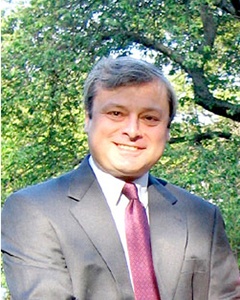
Hermon C. Bumpus Chair in Biology & Professor of Medical Science, Department of Molecular Biology, Cell Biology and Biochemistry, Director, Center on the Biology of Aging
Research
Professor Sedivy's research interests include understanding the biology of aging at the cellular level, the epigenetic regulation of cellular senescence, genome-wide surveillance of transposable elements, and the role of c-Myc in aging.
-

Associate Professor of Engineering
Research
The Shukla Lab develops nano- to macroscale biomaterials for applications in drug delivery and regenerative medicine. They have a major focus on developing new treatments for bacterial and fungal infections using targeted and responsive materials.
-
Professor, Department of Pathology and Laboratory Medicine, Warren Alpert Medical School, , Associate Director for Basic Research & Co-leader of the Cancer Biology Program Legorreta Cancer Center at Brown University , Associate Director, Joint Program in Cancer Biology, Lifespan Cancer Institute
401-863-1170
Research
Research in the Sobol lab focuses on DNA repair mechanisms and the regulation of PARP activation
in the response to replication stress to aid in the identification of novel cancer targets. Further, the lab
develops biological tools and assays to evaluate DNA damage and gene-environment interactions for
the analysis of tumor response, the response to industrial pollutants, and the discovery of molecules
that inhibit cellular DNA repair. -
Director of Lipid Research, Lifespan Cardiovascular Institute
Research
Wenliang Song, MD, MTR, FNLA serves as Director of Lipid Research at the Lifespan Cardiovascular Institute. As a physician-scientist, he specializes in general cardiology with an emphasis on preventative cardiology and lipid disorders. The Song Lab explores the complex interaction of bioactive lipids and lipoprotein particles, as well as synthetic lipoproteins as novel therapeutic tools. They investigate oxidized phospholipids, dicarbonyl scavengers, and the mechanisms behind omega-3 fatty acid supplementation for the cardiovascular system. Welcome, Dr. Song!
-
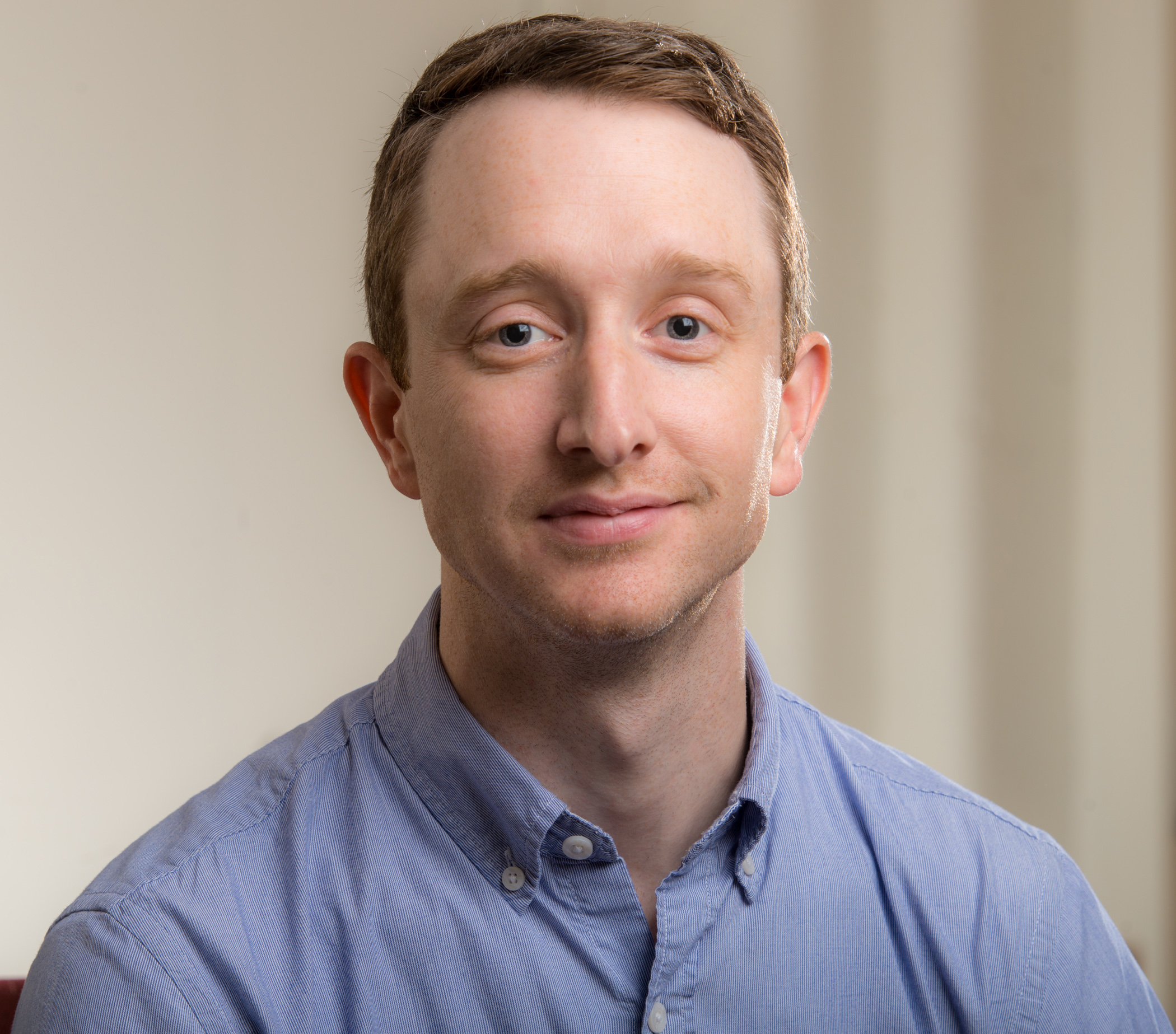
Assistant Professor of Pathology and Laboratory Medicine
Research
The Spade lab studies mechanisms of male reproductive toxicity. We are interested how phthalates, which are widespread environmental chemicals used in the manufacture of plastics, medical devices, and in the formulation of some drugs, impair the development of the testis, causing short- and long-term adverse effects on male reproductive health. We are also interested in how sperm RNAs reflect exposure to environmental chemicals and pharmaceuticals that cause reproductive toxicity, and whether this translates to impaired fertility.
-
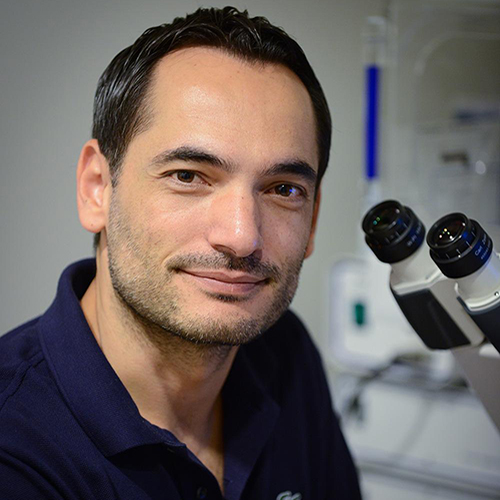
Associate Professor of Neurosurgery (Research)
Research
In the Cancer Epigenetics and Plasticity Lab we employ multidisciplinary approaches and outside-the-box thinking to discover mechanisms that regulate plasticity, motility, genome organization and RNA epigenetics of human glioma stem cells. We are currently generating first-in-class therapeutics targeting non-coding RNAs and the RNA epitranscriptome of solid tumors.
-

Professor of Engineering , DEI Advisory Committee Chair
Research
Professor Tripathi's research interests include understanding complex biomaterials using microfluidics, proteomics, high throughput screening, rheology of complex fluids and lab on a chip applications.
-
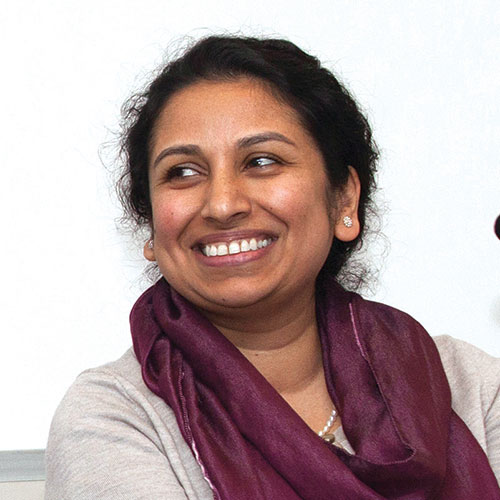
Manning Associate Professor of Molecular Microbiology and Immunology
Research
Disruption of interactions between host immune system and resident microbiota can have profound consequences for host health. Vaishnava Lab's research focuses on understanding the complex and dynamic nature of host-microbe interaction at the intestinal mucosal surface. We use unique in-vivo tools such as germ-free mouse models in combination with a broad array of genetic, cell biological, and biochemical approaches to explore the interactions between intestinal bacteria and our immune system.
-
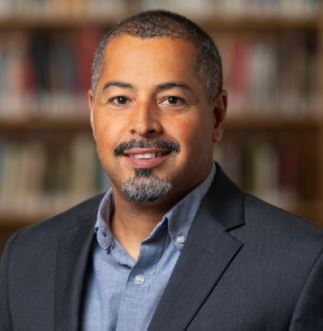
GLF Translational Associate Professor of Molecular Biology, Cell Biology and Biochemistry
Research
The Valdez laboratory examines the function of candidate molecular pathways in preventing and repairing damages that accrue at synapses during aging and progression of diseases. To this end, we study the impact of modulating signaling pathways in cultured cells and rodents using cutting-edge techniques and tools.
-

Professor of Chemistry
Chemical biology, biophysics and their applications
Research
We are interested in developing chemical tools for the regulation of signaling molecules (such as nitric oxide, hydrogen sulfide, sulfane sulfurs, etc.) in redox biology. These tools include donors, prodrugs, scavengers, and imaging sensors. They are potential diagnostic tools and therapeutic agents.
-
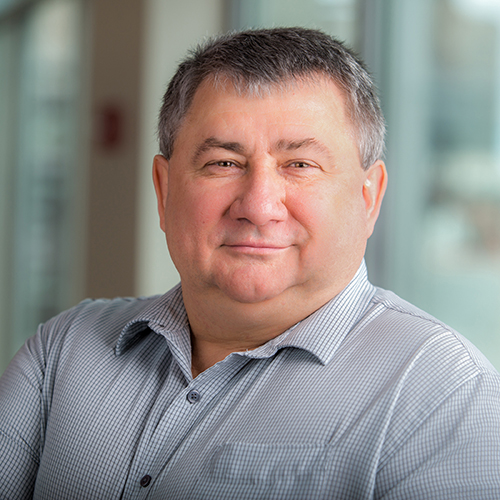
Professor of Medical Science
Research
Our research is focused on the determination of mechanisms of formation and repair of DNA damage and its role in mutagenic and cell death outcomes in response to carcinogens and anticancer drugs. We are also interested in understanding the impact of nongenotoxic stress signaling in cells (hypoxia and heat shock responses, for example) on the ability of cells to cope with DNA damage.
-
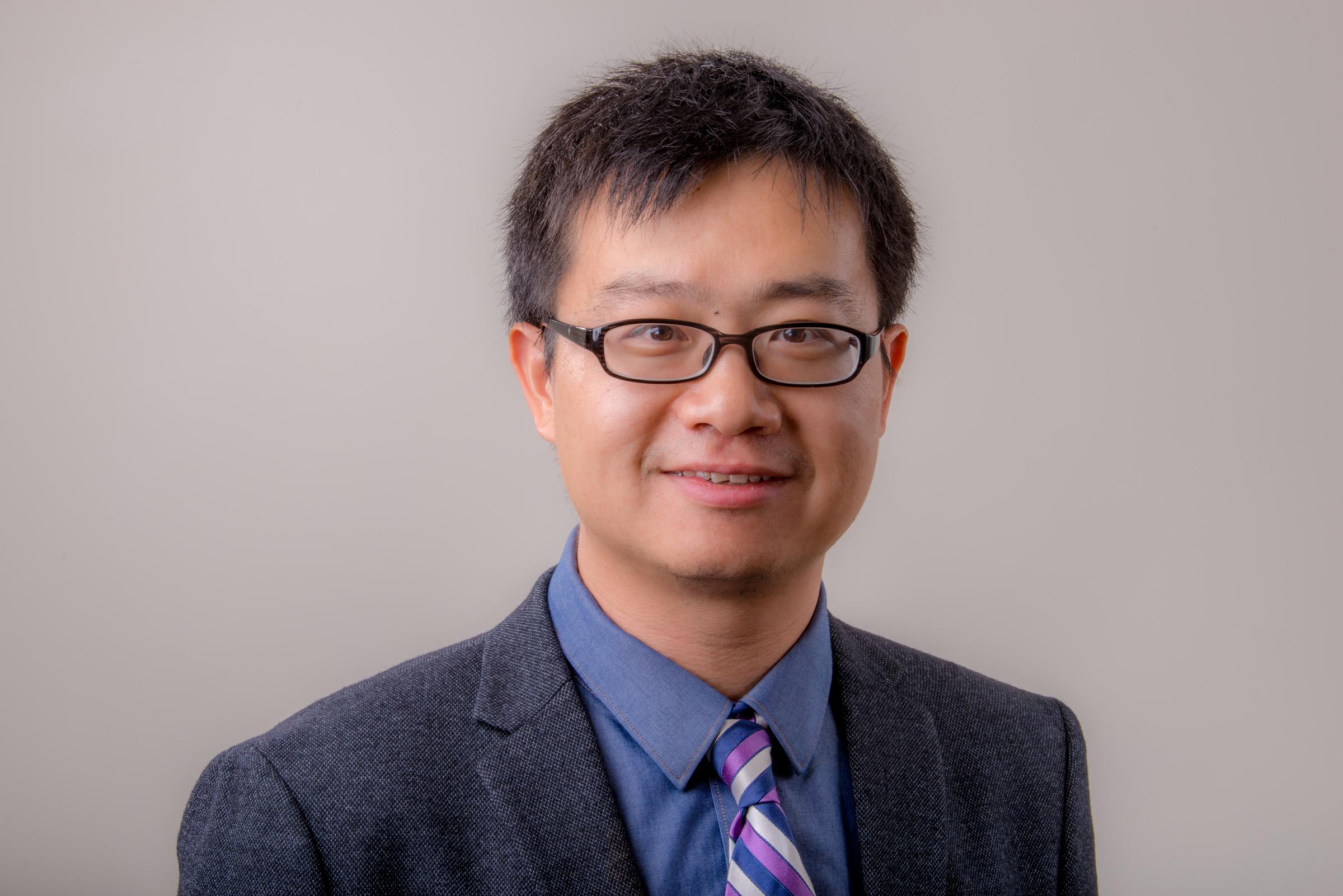
Assistant Professor of Molecular Microbiology and Immunology
Research
My primary research interests are directed towards understanding the immunopathogenesis of lung injury and repair. I have interrogated the roles of adenosine signaling, EGFR signaling, and chitinase-like proteins in a variety of lung diseases including asthma, chronic obstructive pulmonary disease (COPD), and pulmonary fibrosis. My future research plans are aimed at understanding 1) Role of innate immunity in the pathogenesis of fibrotic lung diseases, and nanoparticle delivery systems as therapeutics to treat related disorders; 2) Pathogenesis of abnormal pulmonary vascular remodeling and the development of pulmonary hypertension; 3) Innate Type 2 immune responses in normal pulmonary homeostasis and injury and repair; 4) Novel host genes and cellular pathways modulating respiratory viral infections. My long-range research goals are to identify the immune and cellular responses that mediate lung injury and repair responses and to identify specific molecular targets that can be targeted in the treatment of related disorders.


